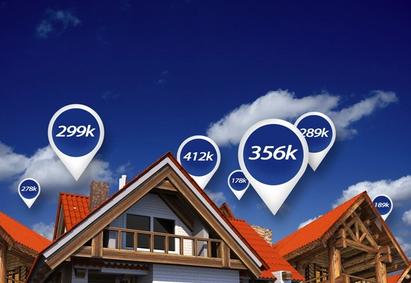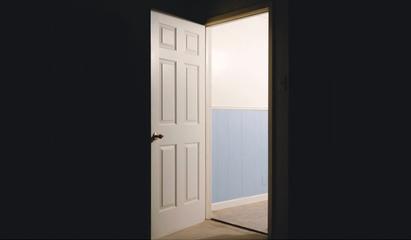Mortgage Repayment Best Practices
Written by:
Lauren Hargrave
Lauren Hargrave
Personal Finance Writer
Lauren Hargrave is a writer from San Diego who focuses on technology, finance, and healthcare. She worked in finance for seven years before pivoting to a career in writing, and now, instead of putting numbers into spreadsheets, she writes about them instead.
See full bio
Fact Checked by:
Dan Silva
Dan is the Vice President of Marketplace Lending at Own Up. Throughout his career, he has held executive leadership positions in the mortgage and banking industry.
See full bio

Congratulations! You’ve purchased your first home and you're on your way to owning it outright. As a first-time homeowner, you may be thinking about the best way to manage your monthly mortgage payments as well as whether it’s beneficial to pay that mortgage down faster. In this post, we’ll discuss:
- Mortgage repayment best practices
- How you can repay your current mortgage faster
- How to decide whether early repayment is a good financial decision for you.
Let’s get started.
Mortgage Repayment Best Practices
Before you can think about repaying your mortgage faster than your loan terms require, it’s a good idea to make sure your financial situation is sound. That means taking the following measures:
1. Make On-Time Payments
Make sure you make your monthly payments on time. A good way to do this is by setting up an automatic withdrawal of your monthly payment from your checking account through your mortgage servicer (i.e. the company that collects your mortgage payment). Document the date on which the payment will be withdrawn so you can make sure there is always enough money to cover the debit.
If you happen to fall behind on your mortgage payments, work with your loan servicer and reach out to a housing counselor through the Department of Housing and Urban Development (HUD). You have options to help you avoid foreclosure.
Tip: Making on-time payments also helps to boost your credit score.
2. Stay Current on Mortgage-Related Costs
Make sure you stay current on your homeowner’s insurance premiums and property tax payments. If your lender set up an escrow account for these expenses, your mortgage payments likely include additional funds to cover these costs. If this is the case, your lender should put this extra money into an escrow account and use it to pay your homeowner’s insurance premiums and property taxes when they are due.
If your lender didn’t set up an escrow, it’s your responsibility as the homeowner to ensure these payments are made on time. Setting up automatic withdrawals from your checking account for these payments can be a good way to stay up to date on them.
3. Set Aside Money for Maintenance and Repairs
Budget and save additional money for regular home maintenance. The amount you should budget for repairs will depend on your home square footage; the age of your home; and other factors, such as the age and state of appliances in addition to areas of the home that require regular upkeep. State Farm Insurance has a guide to help you develop the appropriate budget for your home.
4. Build an Emergency Fund
Financial advisors typically recommend having three to six months of expenses saved in the case that you lose your job or suffer another financial hardship. Having an emergency savings fund can help ensure you stay current on your monthly mortgage payments.
How Do I Repay My Mortgage Faster?
If you want to repay your mortgage faster than your current loan term requires, there are several strategies you can employ. The method you use should depend on your financial goals, your monthly household budget, any incidents of extra income, and other details.
Here are some methods to quicken your mortgage repayment schedule:
1. Talk to Your Lender
Ask your lender or loan servicer if they offer a biweekly payment schedule. With this type of repayment schedule, your monthly mortgage payment can be split into two and paid every other week. This results in one extra mortgage payment per year and can reduce your home loan interest cost by tens of thousands of dollars over the life of the loan.
2. Make Extra Payments
You can do this regularly or submit lump-sum payments whenever you receive extra income like bonuses, inheritances, or income tax refunds. This can also save you tens of thousands of dollars in mortgage interest and reduce your loan term significantly.
3. Consider Refinancing
Refinance your mortgage for a lower interest rate and shorter mortgage term. A lower interest rate will likely lower your monthly mortgage payment, which can make it easier for you to achieve mortgage payoff faster than you originally planned. Lenders offer 10-year, 15-year, 20-year, 25-year, and 30-year mortgages. A shorter loan term will all but ensure you pay off your mortgage faster.
4. Recast your Mortgage
With recasting, you pay a lump sum toward your mortgage balance and the mortgage company adjusts your payoff schedule in accordance with the new outstanding principal. Not all mortgage lenders offer this (e.g. VA and FHA loans aren’t eligible for recasting), but if your lender does offer this service, and you have a competitive interest rate, it can be an advantageous way to repay your loan faster without refinancing.
Recasting typically costs a few hundred dollars, while a mortgage refinance can come with thousands of dollars in closing costs.
Should I Repay My Mortgage Faster?
Maybe. There are many benefits, but also some drawbacks, to repaying your mortgage faster than the original loan term states. To determine whether this is the right financial strategy for you, it may help to consider the following points and reach out to a Mortgage Advisor who can help put them into context for you.
Benefits to Paying Down Your Mortgage Early
There are benefits to making larger or additional payments on your mortgage:
1. Saving Money On Your Total Interest
The shorter your loan term, the less interest you pay overall. You can use the money you save to invest, start a business, or put toward your retirement.
2. Becoming Debt-Free
Owning your home outright gives you a stable and low-cost place to live. This can help insulate you from a fluctuating economy and job market, and it can help control your cost of living in retirement (if you choose to stay in the home for the long term).
Drawbacks To Paying Down Your Mortgage Early
There may also be downsides to paying down your home loan early.
1. Cashflow Shortage
It can leave your net worth heavily invested in an illiquid asset. This could become a problem if you have future cash needs. Using the extra money to invest in other opportunities, like a high-yield savings account, can help you balance between liquid and illiquid assets, which could give you more financial freedom in the future.
Depending on how much of your principal you plan to pay down, and what the interest rate you’re paying on your loan, you might be better off investing it instead. However, it may be best to discuss your options with a financial planner or mortgage advisor before making any decisions.
2. Prepayment Penalties
Paying off loans early can sometimes cost borrowers. It depends on the fine print. Some loan agreements may penalize you for paying off the loan early, so it’s best to review your loan terms before moving forward with extra mortgage payments.
Answer These Questions Before Making Extra Mortgage Payments
Here are some other questions to consider before you decide to put money toward paying down your mortgage faster:
Do you have an adjustable rate mortgage (ARM) and are you afraid of interest rates rising in the future?
If so, refinancing to a fixed-rate mortgage with a shorter term may be a good idea. Or paying down the mortgage faster to save on the higher interest payments.
Do you have an adequate emergency savings fund?
If not, you may want to establish one before putting extra money into a non-liquid asset.
What are your overarching financial goals?
You want to make sure repaying your mortgage at a faster rate is in line with what you’re trying to accomplish financially.
Are you able to pay down your mortgage faster and move toward other financial goals at the same time?
If not, you may want to evaluate your short-term needs and goals, and determine which situations will help your personal finance goals in the long run.
Do you plan to stay in your home for the long-term?
If you plan to move shortly, it may not make as much financial sense to pay down your mortgage faster.
The Bottom Line
If you feel like you could benefit from the guidance of a mortgage professional, reach out to a Mortgage Advisor. They can help you review your loan documents, your financial picture and goals, and determine the best financial decision for you.
If repaying your mortgage faster doesn’t make financial sense at the moment, it may in the future. So make sure to schedule your annual mortgage check in with your Mortgage Advisor so you can stay up-to-date on how your mortgage structure fits in with your financial picture.


